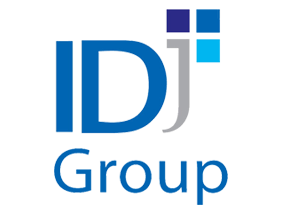American businesses are increasingly attracted to the country as an investment destination, with the Vietnamese government taking action to provide more solutions in order to ease regulatory barriers.

Over 50 corporations from the United States worked with some Vietnamese government agencies and ministries last week to seek solutions to concerns over public-private partnership (PPP), and the sectors of energy, healthcare, financial services, food and agriculture, and technology in a bid to leverage their future investment plans in the country. The annual mission included powerful US companies including AstraZeneca, Coca-Cola, ExxonMobil, GE, Amazon Web Services (AWS), Microsoft, UPS, and FedEx. Being all members of the US-ASEAN Business Council (USABC), the companies already have years-long and successful operations in Vietnam and are planning to expand further.
This year’s get-together of brand giants followed the recent historic second visit to Vietnam by US President Donald Trump. Not only that, Vietnam is currently pushing its efforts to make changes to the legal system in order to attract more foreign direct investment (FDI).
Today’s solutions, tomorrow’s prospects
At a meeting between the USABC with the Ministry of Planning and Investment (MPI), top discussions were on the FDI attraction strategy in the future, public investment restructuring, prioritized industries to FDI attraction, legal policies on PPP, and tax policy strategy.
Healthcare and agriculture innovator Bayer, which has been operating in Vietnam since 1994, raised attention to investment policies for high-added value agriculture, and issues related to land, materials, infrastructure, energy, labor, and the development of the value chain from production to processing and consumption.
Meanwhile, JUUL declared the interest in the country’s cigarette business, including procedures and conditions for cigarette production and the cultivation of tobacco trees.
In response, MPI Deputy Minister Vu Dai Thang said that Vietnam always gives priority to the attraction of foreign investment in high-value agriculture, and deep processing of agro-forestry-fishery.
“The Vietnamese government will amend policies towards encouraging more foreign investment in hi-tech agriculture while dealing with all the mentioned barriers,” he noted.
Regarding US concerns over PPP, Thang said that at present, the MPI is working on a law on PPP. “It is expected that the MPI will seek comments for the draft law in April, and then submit to the Ministry of Justice for appraisal in July and the National Assembly in September.”
In addition to PPP, Vietnam is also prioritizing attraction of foreign investment in processing and manufacturing, electronics and telecommunications, and renewable energy.
As for tax policies, conditions for investment incentives will focus on the value chain, added value, hi-tech application, and environmentally-friendly factors, instead of location, sectors, and investment scale.
Also last week, the US giants met with the Ministry of Health, seeking solutions to concerns over the import of medical devices and other issues related to pharmaceuticals.
At a meeting with the Ministry of Finance (MoF), US investors gave rise to the draft amendment to the Law on Tax Administration, the draft amendment to the Law on Securities, and the draft amendment to the Decree No.68/2016/ND-CP governing the conditions for duty-free business, warehouses, sites for customs clearance, customs inspection and supervision.
“The MoF is completing the draft amendment to the Law on Tax Administration which is expected to be submitted to the National Assembly for approval in May, while the draft amendment to the Law on Securities is expected to be approved in October,” said Minister of Finance Dinh Tien Dung.
While working with the Ministry of Transport, US enterprises including 3M, Dow, Ford and others sought its support to facilitate their activities in transport safety technology, supply of aero engines, reflection painting, and the import of automobiles as ruled in the government’s Decree No.116/2017/ND-CP dated October 17, 2017 on requirements for manufacturing, assembly and import of motor vehicles and trade in motor vehicle warranty and maintenance services.
As part of the working session, US businesses also held discussions with the ministries of Public Security, Natural Resources and the Environment, Industry, and Trade, and several more.
Evidently, US investors seem to be ready for new plans in Vietnam and now look for barriers to be broken and paths to be smoothed in order to make bold next steps. Vietnamese ministries are now being urged to take further action to add to its attraction to welcome new possible US investment inflows.
Time for a change?
To date, American investment in Vietnam has reached 920 projects with total accumulated registered capital of $9.1 billion, ranking 11th among the 130 countries and territories with investments in Vietnam. Experts believe the ranking is higher if US investments through businesses registered in third economies such as Singapore and Hong Kong are taken into account.
Vietnam’s next-generation FDI attraction strategy by 2030 shows its ambition to lure US large-scale projects in the fields of technology, renewable energy, healthcare, and pharmaceuticals. These include trans-national corporations (TNCs) named in Forbes’ List of Global 2000.
Also, the country is revising the Law on Investment 2014, the Law on Enterprises 2014, and tax policies, while restructuring public investment, aiming to increase its national competitiveness to ASEAN 4 Group by 2021 and in ASEAN 3 Group by 2030.
Now US investors and others from Japan and South Korea are heading to Southeast Asia with new policies to expand markets amidst the trade dispute between China and the US, and to benefit from the US government’s recent announcement of the US-ASEAN Smart Cities Partnership. The partnership aims to offer opportunities for US tech companies to develop key urban digital infrastructure in one of the world’s fastest-growing markets.
The $21 billion worth of deals signed recently between Vietnamese and US companies during President Donald Trump’s last month visit went some way to proving how attractive the Vietnamese market is to US investors.
“US companies have a strong interest in Vietnam and they will pour more investment in the future,” said Adam Sitkoff, managing director of the American Chamber of Commerce in Hanoi.
[content_block id=4039 slug=posts-footer]





